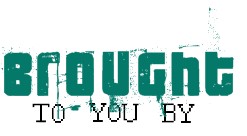D-Pad Studio Interview
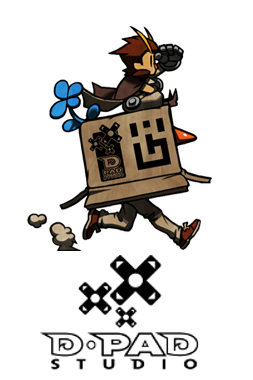 What if we told you there existed a game where you fly around the world without power-ups, carry gunners that shoot bullets Contra style, and explore puzzle-packed dungeons full of mysteries and revolutionary gameplay mechanics? We’re well aware of how crazy this sounds, which is why we decided to consult with D-Pad Studio about their latest creation titled Owlboy.
What if we told you there existed a game where you fly around the world without power-ups, carry gunners that shoot bullets Contra style, and explore puzzle-packed dungeons full of mysteries and revolutionary gameplay mechanics? We’re well aware of how crazy this sounds, which is why we decided to consult with D-Pad Studio about their latest creation titled Owlboy.
Press Pause Radio’s GeorgieBoysAXE and Seandood had the opportunity to interview D-pad members Simon Stafsnes Andersen and Jo-Remi Madsen, as they discussed Owlboy and D-pad's sources of inspiration, trials with the XNA development kit, and other wild facts that caused everyone to laugh simultaneously. We hope you grab a gun-wielding buddy and some wings -- as dangerous as this sounds -- while you sit back and enjoy the interview. You might also want some popcorn and a phone that dials 9-1-1.
George: We here at Press Pause Radio were able to get the opportunity of engaging an up-and-coming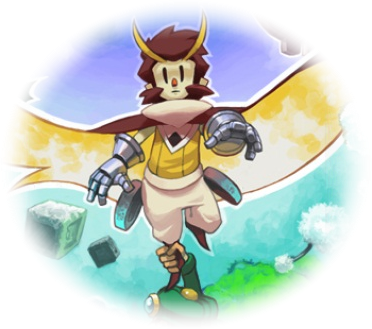 indie studio by the name of D-Pad Studio. Since their first release, Vikings on Trampolines, they’ve been working on their current project Owlboy. The demo has been released since the 20th and [is] available for you guys to try. With that said, Press Pause Radio made the decision of engagement as Sean and I will be tackling the endeavor of this interview. [Sean is] My ever-so-eager co-pilot… isn’t that right Sean?
indie studio by the name of D-Pad Studio. Since their first release, Vikings on Trampolines, they’ve been working on their current project Owlboy. The demo has been released since the 20th and [is] available for you guys to try. With that said, Press Pause Radio made the decision of engagement as Sean and I will be tackling the endeavor of this interview. [Sean is] My ever-so-eager co-pilot… isn’t that right Sean?
Sean: Oh yeah.
George: And with us we have Simon and Jo-Remi of D-Pad Studio. How are you guys doing?
Simon: Doing good.
Jo-Remi: Doing great!
George: Hey that’s wonderful to hear! Let us go ahead and jump past the foreplay and get down to the stickiness of the interview; let’s start off with you guys explaining the genesis of D-Pad Studio. How exactly did you guys come about?
Simon: Yeah that’s kind of a complicated question. Shall we go ahead and do the usual routine Jo?
Jo-Remi: [chuckles], Yes please.
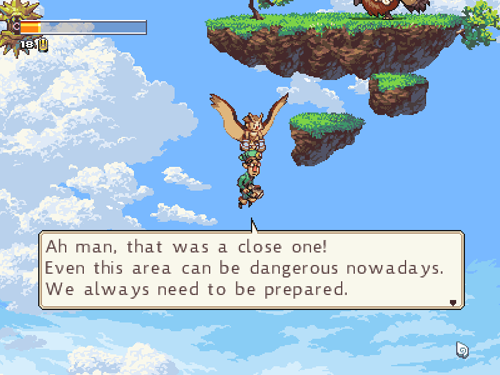
Simon: All right then, I’ll start off with my role. D-Pad Studio was started more as a fun little get-together group where I joined in on when work for a pixel-artist was needed for a tiny-RPG project by the name of Rhapsody. The project didn’t really go anywhere after a year’s worth of work. I got bored and started working on the concept for Owlboy. Eventually the project took over and the decision was made to commit to it. We wanted this to be a professional effort and thus [came] the birth of D-Pad Studio, but it wasn’t really a company we were initially going for but rather a label more or less to get the game up and running.
After putting out a beta version of the game, there’s a video you can see online from 2008 where we announced that Owlboy would be released for play in 2009. Unfortunately as you know that didn’t happen because within mid-development, the programmer left the team. So that year was spent in search of a replacement programmer, placing us all work on D-Pad Studio on hold, and then I met Jo.
Jo-Remi: Yea, actually I met him casually over at a mutual friend’s house where Simon showed off
Owlboy, and I instantaneously fell in love with it. I was originally going to England in search of my dream to work at the big studio you all may know as Lionhead Studios. However, after seeing Owlboy I had to leave England to help work on Owlboy because I loved it so much.
George: That’s wonderful; I can honestly just picture a montage between you guys, some real magic, I honestly wasn’t expecting that [chuckles].
Simon: It’s a nice story to tell. Honestly, it’s been a hard road reaching to where we’re currently at, and
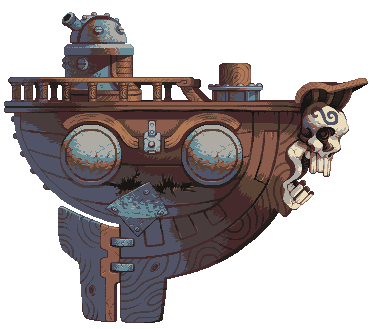 I realize that to a lot of people, with the videos available online that we’ve been sitting on our asses for three years and have nothing substantial to show for it. I can assure you though that we don’t take weekends; we sit around the office working all day to ensure this concept meets our standards because we know we have fans that have been patiently waiting.
I realize that to a lot of people, with the videos available online that we’ve been sitting on our asses for three years and have nothing substantial to show for it. I can assure you though that we don’t take weekends; we sit around the office working all day to ensure this concept meets our standards because we know we have fans that have been patiently waiting.
George: Just a quick mention, which I’m sure I’ll bring up again later in the interview, but we did get the opportunity to download the game and play the demo; it was much longer than I had expected.
I thought the pacing was done just right to introduce all the core mechanics of Owlboy and it was refreshing to experience mechanics and play styles beyond my initial expectations that followed the gameplay trailers I watched.
Simon: Funny enough, we actually cut out about fifty percent, roughly what the original content was going to be for the demo the night before its release on August 20th.
Jo-Remi: Right that’s because with the original start section, we were going to place players where you would first learn the mechanics of the game through the introductory tutorial of the game. On the final day, however, we decided “Hey, let’s just drop the play in the middle of the action instead.” What we did instead is created a more condensed tutorial for the demo through added signs that detailed information throughout the level as you played it and it just conveniently worked out.
George: Yeah I agree, it was pretty intuitive right off the bat.
Simon: Well I think what the problem with the initial version in the demo was -- if we were to ask people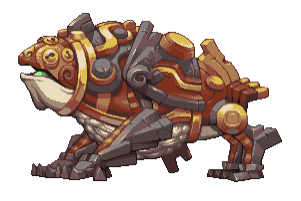 “Would you guys like to play everything now or just a portion of it?” then of course the obvious answer we would get is “Give us everything.” So we figured if we’re going to be releasing this game later this year, then we thought that we would display an altered version of the introduction so that there would still be room to surprise players. That way they don’t have anything to go back on when playing the final version.
“Would you guys like to play everything now or just a portion of it?” then of course the obvious answer we would get is “Give us everything.” So we figured if we’re going to be releasing this game later this year, then we thought that we would display an altered version of the introduction so that there would still be room to surprise players. That way they don’t have anything to go back on when playing the final version.
George: I see.
Sean: So Owlboy was developed using Microsoft XNA, what was your general experience like using that particular development kit?
Jo-Remi: Well it’s really easy to use. However, it’s not very flexible. We can either release it on Windows
PC or the Xbox Live indie game space, but the Xbox Live Indie game space isn’t even available in our country yet, so it limits our approach with the game’s release more so. We’re also getting more and more requests from fans as well who want to see if we can release Owlboy on PlayStation Network or
WiiWare but unfortunately we cannot.
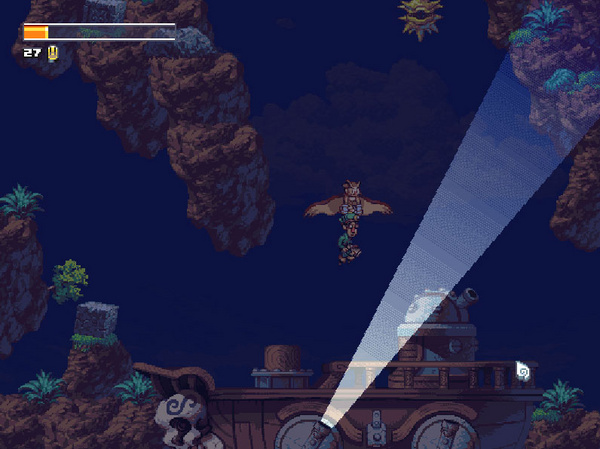
Simon: [chuckles] Yeah we do get a lot of requests to bring the game out on just about everything that isn’t the platform we’re putting it on. And of course, these are requests from individuals that may be unaware that we developed with XNA and [how] the conversion process is very difficult. We definitely have an appreciation from everyone who has been exposed to Owlboy and has shown interest in getting the game, but it just comes down to the size of our team. I do the art, Jo and Henrik program all of the game’s coding, and then we have our composer. It just boils down to us not having the capacity of being able to do anything else really.
George: I completely understand that, especially with the limits imposed through developing Owlboy in XNA. However, let’s just say that Owlboy does become a success… would you ever consider then going through the porting process [for other platforms]?
Jo-Remi: We’ve honestly been discussing that a lot. I feel confident that when the time comes, we’re going to do it down the line because we’re so positive with the quality of Owlboy that we want to make sure that the game reaches as many different audiences as possible.
Simon: The idea simply is that we have to use our time wisely; we’ve figured that the best course of action is to focus on finishing the development for the platforms we have already decided on. Working on ports right now would simply set us behind again and push the game’s release into next year, which wouldn’t be the best strategy for us.
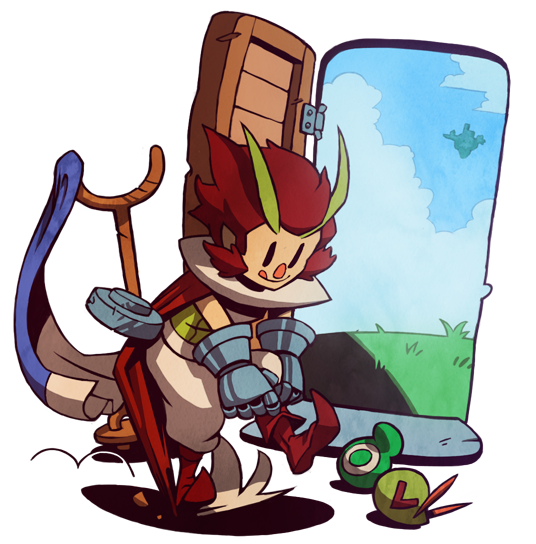 George: Well if I can cut in and ask that if the capacity were there, ideally what platforms would you guys like to port Owlboy to?
George: Well if I can cut in and ask that if the capacity were there, ideally what platforms would you guys like to port Owlboy to?
Simon: Well for me… honestly, I would love to port Owlboy to every console. Owlboy has a very accessible appeal that can be enjoyed by all gamers with the PlayStation 3 or Nintendo Wii… hell, even OnLive for that matter. The only thing we really couldn’t picture Owlboy on is for Smartphone only because the limited interfaces and the lack of control options we feel would be needed to enjoy Owlboy.
George: I would throw in my two cents that Owlboy would be ideal for WiiWare and DsiWare. Not simply just for the fact that Nintendo’s lack of attention to releases are tear-jerking at the moment, but the advantage of say for example, utilizing a Wii-mote/nunchuck combo or stylus with Owlboy’s shooter mechanics would be brilliant.
Simon: I personally agree with you, it would be awesome to release Owlboy for PSN or WiiWare, but the stringent policies they both enforce towards releases on their platforms, Nintendo especially. Nintendo looks for a certain level of pedigree within the industry so new companies like us may most likely not be able to release on Wiiware but if we someone can throw us a bone then we’ll definitely bite.
George: [chuckles]
Sean: So also jumping back to the general aspect of the game with its style, if you guys could name a few, what games would you say inspired Owlboy in general and the multiple directions it went as a platformer?
Simon: The general idea? Oddly enough [it] came from Super Mario Bros. 3.
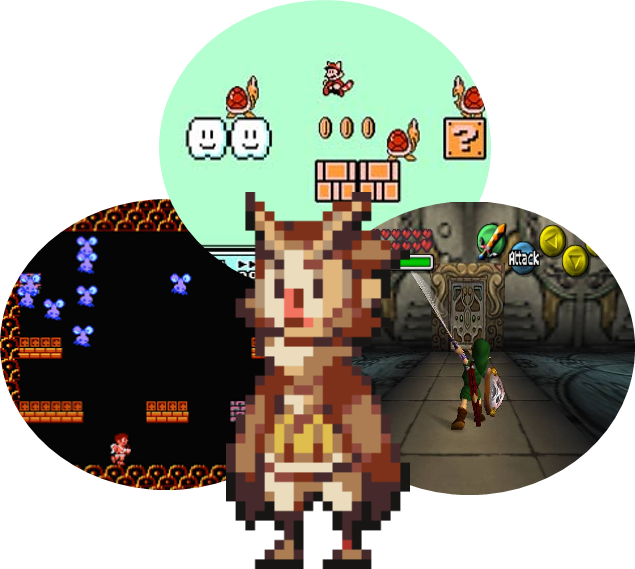
Simon: yeah we wanted to take a weird and obscure approach towards platforming, and we wanted to reverse-engineer the Tanooki suit mechanic to where you’re able to fly indefinitely, yet still keep an emphasis on platforming.
George [Abruptly interrupting]: You are a beautiful man… [Laughter follows from everyone] I find you quite gorgeous even.
Simon: Thank you? [Chuckles] The second game we have drawn a lot of inspiration from is Kid Icarus because I just absolutely love that game. Kid Icarus has so many great elements to it but the only thing I felt that it lacked was more freedom.
Naturally this brings me to the third game that inspires Owlboy, which is the Legend of Zelda… or the series really for that matter. It comes down to the fact that I grew up on those games. I owned, played, and loved every single one of them. There are elements that really help these games [get] along. One is that you have a clear goal that you play to complete, but the gameplay isn’t completely focused on the path leading to the climax. Legend of Zelda provides so many things you can do in its world that leaves the “path” of the game. With that said I really wanted to capture this element, mainly from Majora’s
Mask. Everything that you could do in its town, I mean, you always had the option to just set out and go rescue the world, which is a great game on its own. But the impact of the world around the quest being able to alter the lives of the people within was nothing short of brilliant.
George: I can say that I’ve always enjoyed the side-quest mechanic myself, but the vibe that I had from playing the demo was the quirky non-existentially named sub-genre that is Metroidvania. I think it really just stemmed from the open world that you move through within Owlboy, and that kind of freedom presented within the level design and 2D nature of it resonated pretty strong with me.
Sean: That’s always the magic word with him: Metroidvania.
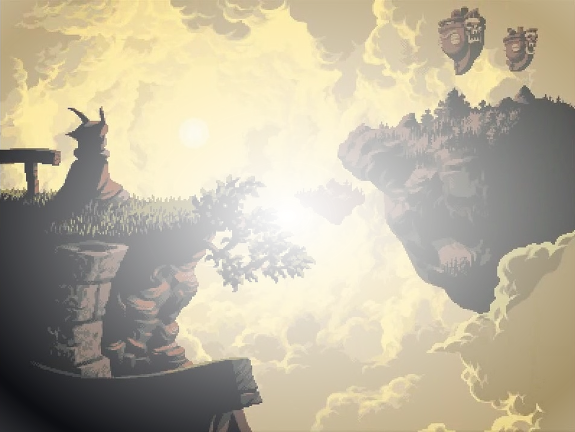 Simon: [Laughs] Well, that is true and funny enough. That word is thrown around quite a bit within the
Simon: [Laughs] Well, that is true and funny enough. That word is thrown around quite a bit within the
indie community. Especially after Cave Story came out, Metroidvania became this huge thing. I really don’t mind that comparison being as I love those games. However, the way Owlboy is set up there’s a more linear feel to it if you were to directly contrast it to games that meet the Metroidvania criteria. But it’s not going to feel linear since you will have incentives to explore parts of its world you’ve already been to, and still find something completely new that will reward you.
For the record, I honestly love the Metroid series, but the direction of Owlboy and of the idea incorporated within it are nit-picks from a variety of games that would help give it a unique feel. Ultimately the goal of Owlboy is to incorporate all these elements and make it completely work in a 2D side-scrolling platform core. Whether we’ve succeeded or not remains to be seen, but having this 2D game with a lot of vertical convey by way of flight is something that has never been done before. Every idea or inspiration that we’ve taken from the games mentioned has been funneled into enhancing that main core concept.
George: There were a number of elements that I came across in the demo. There was an inventory that held items you came across to boost stats or defense, characters you encountered who you would carry as they gunned down enemies, and puzzles that played with physics involving the use of wind and mass.
How exactly did you guys go about deciding how to implement these mechanics? [Laughs] I guess what I’m asking if you guys can give us your own little Shigeru Miyamoto rundown.
[The group pauses to laugh]
George [continues]: I mean, we know about all the elements you wanted to implement but what was the process like to make them work for your game and the Owlboy world?
Simon: There was an incredible amount of time that went into Owlboy. The vision I guess you could say was that I simply just woke up one morning and I pictured a man standing on some clouds. Then I imagined what it would be like to fly anywhere between giant masses of islands, Lets also throw in that these islands are really far apart and the natives of these islands cannot understand each other. This then stemmed forward that the man was a mute; this ultimately influenced the decision early on in development that the main character Otus would not be able to speak. With these ideas aside, however,
I had no clear vision of what I wanted with the Owlboy universe other than the fact that main character needed to fly.
There were several concepts for the Main character in fact. It started as an insect with a jetpack that allowed it to fly, a red dog with wings, and [at] one point even I had an idea of a toad that was accompanied by some bizarre drooling guy who would carry barrels in his arms? Something like that… [Laughs]
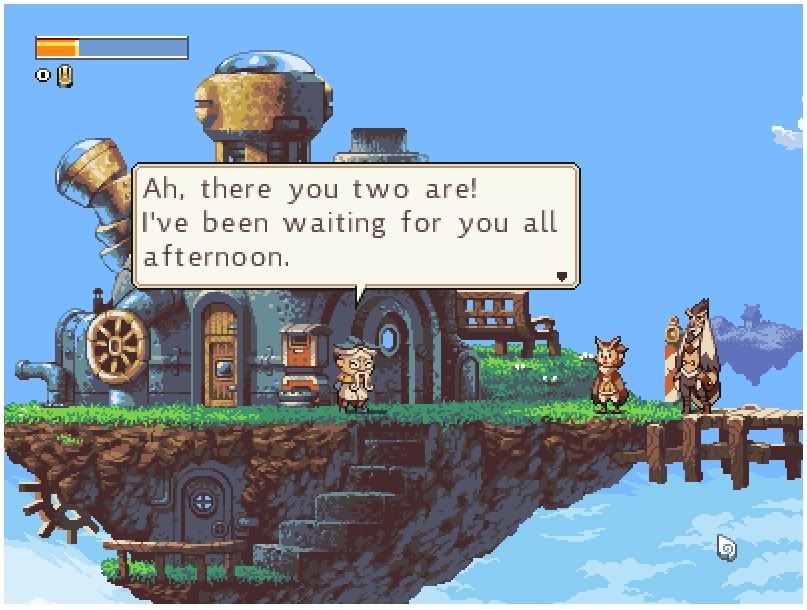
Anyway, when I finally came to the conclusion that I could use an Owl I just couldn’t believe that I haven’t thought about it before. Everything just really fell into place after that being as it helped establish the entire universe. Owls are known for their wisdom, which became a central theme within the game, and what can Owls do? Well if there are humans also inhabiting this world why not have the owl carry people around through flight? This then inspired a carrying mechanic but then we examined upon the idea further. If the Owl is going to be busy carrying the human and flapping its wings to fly then it’s defenseless, so then we thought about the human’s role should be. Why not have the human carry a gun that would fend off enemies and protect the both of you while flying? This then led to the creation of the gunner mechanic.
The items actually came from a conversation with my girlfriend. We were talking about radishes and as a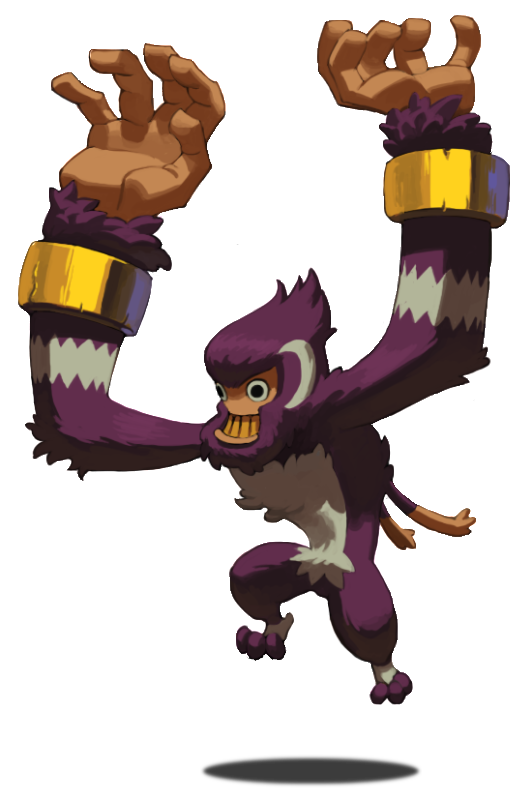 joke I mentioned Blue’ishes and all of the sudden, BOOM… [George laughs] there they were, I imagined a system involving “ishes”. I’ve always been under the mentality that unless you’re making a game specifically for the levels it contains, you should never just add different elements that affect the game because you end up with something entirely different. So with this kept in mind our focus on items that create status effects or power ups that can be found that don’t necessarily alter the course of the game but rather help determine the outcome of a battle. This approach towards the game should really be credited to Jo, because when we first met, he was working a shooter that was called Dungeon Chaos and it was really awesome to see all the weapons you had available to fire around and experiment with.
joke I mentioned Blue’ishes and all of the sudden, BOOM… [George laughs] there they were, I imagined a system involving “ishes”. I’ve always been under the mentality that unless you’re making a game specifically for the levels it contains, you should never just add different elements that affect the game because you end up with something entirely different. So with this kept in mind our focus on items that create status effects or power ups that can be found that don’t necessarily alter the course of the game but rather help determine the outcome of a battle. This approach towards the game should really be credited to Jo, because when we first met, he was working a shooter that was called Dungeon Chaos and it was really awesome to see all the weapons you had available to fire around and experiment with.
At its core the weapons were arbitrary towards completing the objectives but they affected how you played the game to get where you needed to.
The last revelation at this point returned back to the gunners. Why should we only allow for the player to carry one? Then Megaman X came to mind, and we decided that the player needed to be able to change out the gunners.
George: Yeah I saw how that was incorporated within the demo, I noticed there’s this contextual relation with that mechanic that’s hooked to the plot itself and gives off this sense of rapport that the gunners have with Otus. All in all the game is coming together real nicely and we’re aware of its history in development but we’re not going to hound you for a release date, just know that I want it now dammit!
[The group laughs]
Simon: And that’s positive though. It means that people are excited, and we can appreciate that… it’s just that we’re constantly working towards perfecting this game as much as possible and I know you hear that from a lot of studios, but we want our work to show in this aspect.
George: I can say from my impressions so far that it does.
Sean: It really does.
Simon: Thank you. Our philosophy is really simple; in fact I’m sure Jo can take this one over because I have a habit of talking too much…
Jo-Remi: No no no no, please, go right ahead
[The group laughs]
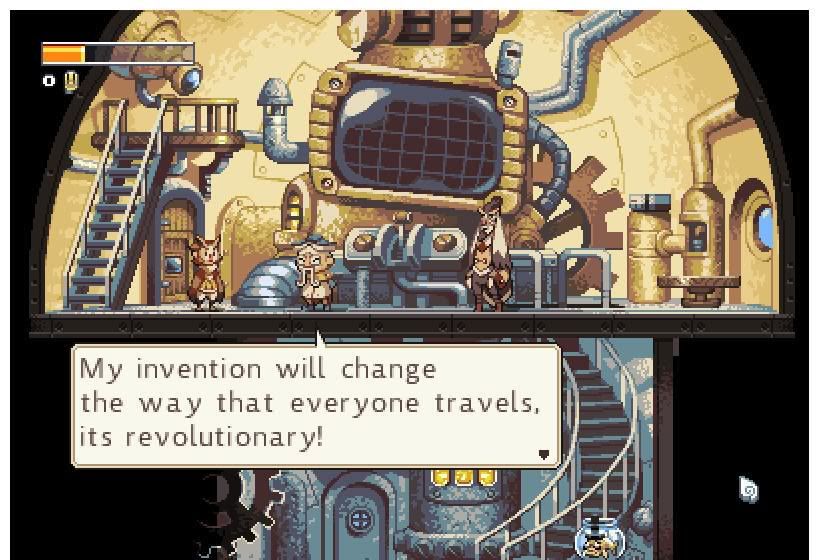
Simon: Well our philosophy is simple and we’ve incorporated bits from Blizzard and Nintendo’s philosophy I think but it boils down to this: a bad game will be a bad game forever, and a good game will always be a good game forever. Even it takes another year to finish this game then we’re better off because our goal is not make insane amounts of money on this game but just simply creating a game that people want to play.
George: That’s a philosophy I really enjoy and what I think really makes the indie games stand out from the rest.
Sean: It’s one that should always be practiced, honestly.
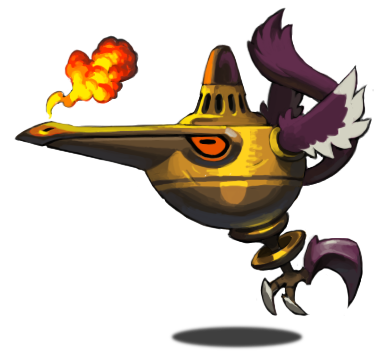 Simon: Thank you. We understand that every studio needs to make money in some way, some go about in different ways like “Hey, in the mean time let’s release this iPhone app that makes fart-noises,” or “Hey let’s take out some contract work for that new Barbie game.” We know that not all studios are alike, but the goal we have with ours is [that] we want our titles to exemplify this feeling of wanting to be played instead of being taken for some sort of superficial money making machine. [Like] new [and] fresh experiences that represented our credo through its quality.
Simon: Thank you. We understand that every studio needs to make money in some way, some go about in different ways like “Hey, in the mean time let’s release this iPhone app that makes fart-noises,” or “Hey let’s take out some contract work for that new Barbie game.” We know that not all studios are alike, but the goal we have with ours is [that] we want our titles to exemplify this feeling of wanting to be played instead of being taken for some sort of superficial money making machine. [Like] new [and] fresh experiences that represented our credo through its quality.
Sean: So you guys have two titles under your belt once Owlboy releases. Ideally, where do you see D-Pad Studio going once Owlboy finishes?
Jo-Remi: TO THE SKY!
Sean [Laughing]: I like that… good answer!
Simon: Yeah that was a good choice of words. Well… at least in my head, an idea of let’s say… hiring five more people or six more people something like that, after that, I don’t see a need to hire anymore people. There’s a certain limit that a company reaches when it stops being about the visions your company originally set out to create. When you have say a hundred man studio or a two-hundred man studio, and there’s someone sitting on top of everyone telling them what exactly they’re supposed to create, [then] the vision gets lost in the shuffle of “churn” work the employees push out [to keep the company going]. So if we can make it work with just a tiny group of people then I would see us being much better off, because we won’t fall victim to that sort of self perpetuating corruption that spreads within the efforts of the workforce.
George: I enjoy hearing your take on it. It’s always this double-edged sword when you imagine how 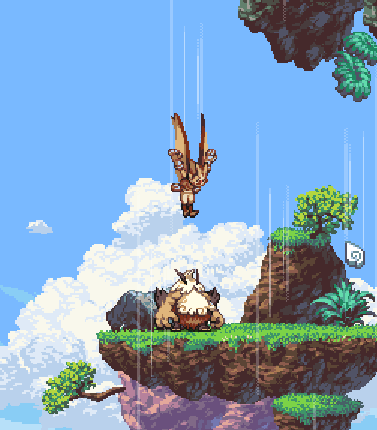 great it would be for independent companies to have the resources a major studio that’s backed by a major publisher would have, but you want them to retain the same creative freedom as well. Generally, those two aspects come into conflict with each other with little compromise. Granted, I’m aware of some shining examples that debunk that statement… it’s just more common to come across the prior as opposed to the latter, so it’s comforting to hear you guys acknowledge this within the grand scheme of D-Pad Studio.
great it would be for independent companies to have the resources a major studio that’s backed by a major publisher would have, but you want them to retain the same creative freedom as well. Generally, those two aspects come into conflict with each other with little compromise. Granted, I’m aware of some shining examples that debunk that statement… it’s just more common to come across the prior as opposed to the latter, so it’s comforting to hear you guys acknowledge this within the grand scheme of D-Pad Studio.
With that said, I’d like to ask about the next project you guys will undertake. What kind of different ideas or genres would you like to tackle? And finally, as a personal question seeing as we’ve noticed your love of retro gaming, what are your thoughts towards the sub-genre of 2.5D games?
Jo-Remi: Well as far as our ideas and plans for our future, I can confidently say that we have hundreds of them. We’re fully prepared with the knowledge of knowing that we’re going to make games until we die.
[The group laughs]
Simon: Yeah, pretty much. I can reveal that I myself have been working on this really detailed concept on the side. I haven’t really told Jo about, because knowing I had gone ahead and let him in on it, then we would have had a working prototype of it within a week, and then would have found ourselves saying “Oh shit, we forgot about Owlboy again! We need to get right back to work.”
So we have a hard-lid on it in order to focus with the tasks at hand with getting Owlboy finished and released. Also going back to the question regarding 2.5D games, if we can be more specific, do you mean 3D games that are contained within a 2D plane?
George: Well some examples I could use would be the Console Klonoa games or Kirby 64: The Crystal Shards.
Simon: Hmmm ok now I got you, well I’ve played quite a few that used that mechanic in a really awesome way. The first game that comes to mind when I think of 2.5D games is Viewtiful Joe and I can’t think of anyone that hates that game whenever it’s brought up. I loved the mechanics utilized in it and there was another game that felt similar that was a Ghosts ‘n Goblins game but I can’t quite remember the name of it.
George: Ultimate Ghosts ‘n Goblins for the PSP is the game you’re referring to.
Simon: Yeah that’s the one! I thought that was uniquely done. Honestly believe that there is potential for that kind of mechanic but I think it really works for certain games which are why the mechanic is pretty uncommon. I always get this sensation when 2.5D comes into play. It’s like I’m on a stage and that I’m not a part of that world, but rather a spectator looking in some box-like display, like a diorama as opposed to pure 2D games where I am a part of that world. This worked really well in Viewtiful Joe’s favor and played to its strength because the game was going for this movie theater feel in its presentation. So in essence I can see where the potential in the concept but it still needs more development because I feel it still far from being refined.
 George: I can argue that there are games that do play to that strength. Returning back to Klonoa, for example, with its branching paths it played a role where you got to travel in and out of the background, but the movement was still strictly 2D or games like Top Hunter. And even more obscure of a mention, but Virtual Boy’s Wario land provided interaction between the background and foreground that just gave the stage an extra depth of life. Oh shit, [laughs], I guess I would have been better off mentioning Donkey
George: I can argue that there are games that do play to that strength. Returning back to Klonoa, for example, with its branching paths it played a role where you got to travel in and out of the background, but the movement was still strictly 2D or games like Top Hunter. And even more obscure of a mention, but Virtual Boy’s Wario land provided interaction between the background and foreground that just gave the stage an extra depth of life. Oh shit, [laughs], I guess I would have been better off mentioning Donkey
Country Returns as that’s more of a relevant and recognized example that demonstrates everything I was just saying.
Sean: Don’t forget to mention Tomba.
George: Oh yeah that’s right, Tomba!
Simon and Jo-Remi: Funny enough we just played Tomba here at the studio this summer.
George: Oh really? Well what did you guys think of it?
Simon: It was pretty… bizarre. I mean, 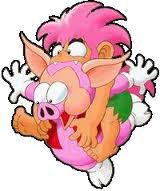
you “humped” goblin’s heads so that you could learn their language.
George: such a fantastic game…
[The group exits with laughter]
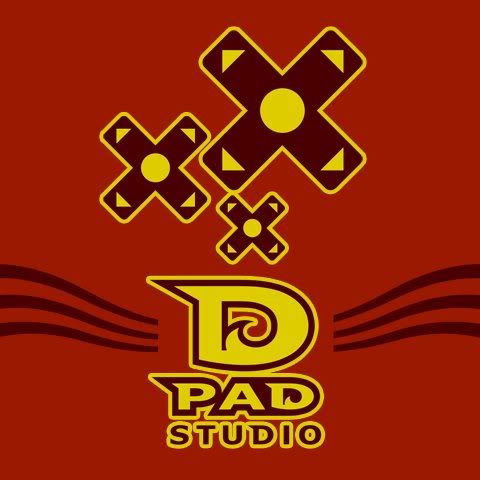 This interview was with fine folks at D-Pad Studio. If you would like to keep on Owlboy or check out some of their other work and blog posts then you can find their website right here. You can also find them on their Facebook or Twitter where you can catch up on any updates or posts regarding Owlboy or their current musings.
This interview was with fine folks at D-Pad Studio. If you would like to keep on Owlboy or check out some of their other work and blog posts then you can find their website right here. You can also find them on their Facebook or Twitter where you can catch up on any updates or posts regarding Owlboy or their current musings.
Finally try the game for yourself and click the link here to download the game we've all been talking about! Also Simon and Jo-Remi wanted to express to everyone that their email inbox was flooded with over 400 emails after the release of the demo so they'll try to get back to everyone as soon as possible. Expect to find more interviews like this one here at Press Pause Radio and if you guys have any questions, comments, or concerns then shoot them through the usual methods and they'll be featured on Select Feedback!
 D-pad Studio,
D-pad Studio,  Indie Games,
Indie Games,  Metroid,
Metroid,  Owlboy | in
Owlboy | in  Interviews
Interviews 



